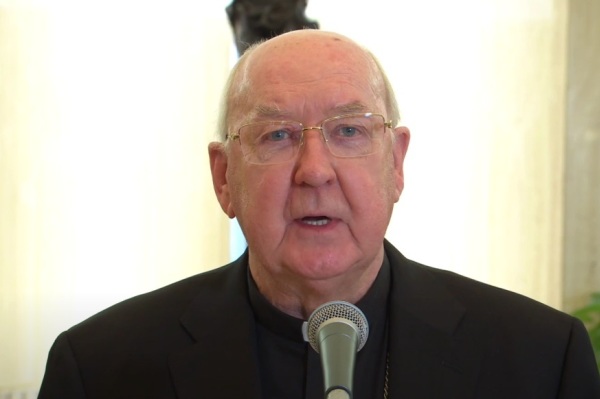How should parents talk to their kids about Santa Claus? Al Mohler weighs in

Southern Baptist Theological Seminary President Albert Mohler Jr. suggested to Christian parents that they shouldn't treat Santa Claus as an imaginary figure.
In an episode of his podcast “The Briefing” that was posted on Friday, a listener asked Mohler about his views on how parents should talk to their children about Santa Claus.
Mohler recommended that parents “do not speak of Santa Claus as an imaginary figure,” but instead, when asked about him, focus on the historical figure of Saint Nicholas.
“There is something you're able to say to a child which is, ‘you know, there was an early Christian who lived long ago who was very kind to children and gave gifts,’” Mohler explained.
“But the reality is, you don't have to say there never was a Santa Claus, you just have to say, ‘you know, our attention at Christmas isn't toward any particular human being at all.’”
Mohler went on to state that “Christmas is about the baby born in Bethlehem's manger and that is something that took place, not just as a story but is true.”
“Christians need to be generous. The reality is that Christians need to love children. And so, we don't have to go around talking about how much we don't believe in Santa Claus; we go around talking about how much we do believe in Jesus,” he added.
Mohler was also asked by a different listener about whether Nativity displays violated the Second Commandment, which prohibits the creation of any graven image.
The Southern Baptist leader explained that while he was not fond of putting images of Jesus in his office or home, he did not consider the practice to be inherently wrong.
“I'll simply say, I do not believe that having a Nativity scene in your home obscures the truth of Christmas,” said Mohler. “But it does need to be the opportunity to tell the truth about Christmas.”
Recently, the Roman Catholic Diocese of Noto, which is based in Sicily, issued an apology when its bishop told a group of children that Santa Claus did not exist and that his red outfit was created primarily to help market Coca-Cola.
“I express my sorrow for this declaration which has created disappointment in the little ones, and want to specify that [Bishop Antonio Stagliano’s] intentions were quite different,” said diocesan spokesman the Rev. Alessandro Paolino in a post shared on the diocese's Facebook page.
He also said that the diocese “certainly must not demolish the imagination of children, but draw good examples from it that are positive for life.”
“Santa Claus is an effective image to convey the importance of giving, generosity, sharing. But when this image loses its meaning, you see Santa Claus aka consumerism, the desire to own, buy, buy and buy again, then you have to revalue it by giving it a new meaning,” Paolino said.






















